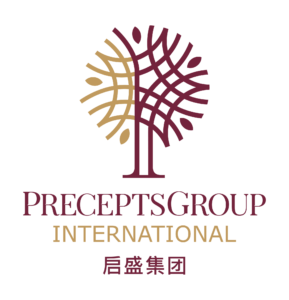Personal
Private Trust Company

Exploring PTC as a solution for Trust Management
Considerations in Setting up a Private Trust Company
In the conventional approach, individuals often establish a Trust through a Will, creating what is known as a Testamentary Trust. Given the intimate nature of Trusts, people typically appoint individuals they share close relationships with and trust implicitly.
However, a significant drawback emerges when considering the natural lifespan of a person – their ability to serve as Trustee may not endure the entirety of the Trust, especially when spanning multiple generations. Additionally, concerns arise about potential biases in individuals acting as Trustees, potentially jeopardising the interest of Trust beneficiaries.
In scenarios where an individual trustee is less than ideal, the logical next step is to explore the option of a Licensed Trust Company (LTC). Unlike individuals, an LTC has no inherent lifespan, promising perpetual service. Its neutrality and independence make it an ideal candidate for Trust management.
However, it is crucial to recognise the potential disadvantage – a lack of flexibility in certain administrative decisions. For example, when family members, who are also beneficiaries and actively involved in the business, need to make critical decisions, an LTC might understandably, exercise caution. This caution, often involves extensive due diligence before approving decisions like obtaining a business loan, can lead to frustration among family members over time.
A Private Trust Company (PTC) is a purpose-built solution for administering Trust(s) exclusively for connected persons, such as those related by blood or by marriage.
Under Trust Companies (Exemption) Regulations, a PTC is exempt from obtaining a licence under the Trust Companies Act 2005. It is essential to note that a PTC must engage an LTC to act as ts administrator, ensuring compliance with the Monetary Authority of Singapore’s regulations on preventing money laundering and countering the financing of terrorism.
This strategic partnership ensures the necessary checks and balances, adding a layer of security and regulatory adherence to the Trust administration process.
|
Features
|
Private Trust Company (PTC)
|
Licensed Trust Company (LTC)
|
|---|---|---|
|
Ownership
|
Owned by family members*
|
Third party
|
|
Management
|
Family members participate in management of PTC
|
Third party
|
|
Administration of Trust
|
Family members have active role in making decisions
|
Third party
|
|
Cost of the structure
|
Typically higher
|
Typically lower
|
|
Types of trust administered
|
Only for trust with connected persons as prescribed under the Trust Company (Exemption) Regulations
|
No limitation on the types of trust it can administer
|
In a Private Trust Company (PTC), the board of directors can comprise the family members of the settlor/founder, actively engaging in decision-making processes. Consider the scenario of obtaining a business loan: with family members also serving as trustees within the PTC, decisions become streamlined. Instead of navigating external channels, the same group of individuals can swiftly reach a consensus, wielding influence at both the business and trustee levels. This synergy becomes particularly crucial for trusts overseeing family-run businesses, facilitating quicker and more aligned decision-making.
The value and size of the trust fund emerge as critical factors when determining the suitability of a PTC for your family. Operating and maintaining the PTC structure involves inevitable costs, encompassing the engagement of professionals such as accountants, auditors, tax advisors, and lawyers for effective administration.
In essence, while a PTC structure proves invaluable, particularly for families with intricate assets and diverse needs, other factors like successor availability and maintenance costs must be carefully weighed.
Ready to explore the potential of a PTC for your family business?
Book a consultation with us at PreceptsGroup to assess the perfect fit for your unique circumstances.








